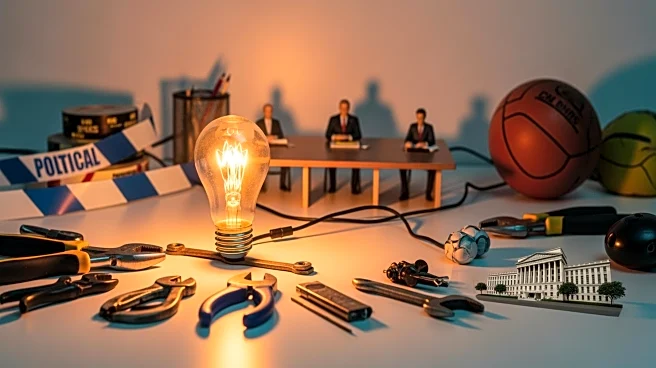What's Happening?
A YouTuber named Chris Doel has ingeniously repurposed 500 disposable vapes to power his entire house and workshop. This project involved salvaging lithium-ion batteries from the vapes, which are typically
considered e-waste. Doel's process included using a pump from an old CPAP machine to identify usable cells, followed by extensive 3D printing and soldering to assemble the battery pack. The system generates 50 volts DC, which is then converted to 240 volts AC using an inverter, allowing Doel to disconnect from the main electricity grid. This initiative highlights a creative approach to recycling and energy independence.
Why It's Important?
This project underscores the potential for innovative recycling solutions to address e-waste issues. Disposable vapes, often discarded after a single use, contribute significantly to environmental pollution. By repurposing these devices, Doel not only reduces waste but also demonstrates a sustainable energy solution. This could inspire similar initiatives, promoting environmental consciousness and self-sufficiency. The project also raises awareness about the hidden potential of everyday waste, encouraging individuals and industries to rethink waste management strategies.
What's Next?
Doel plans to further develop his off-grid capabilities, potentially taking his workshop entirely off the main grid. This could involve expanding the current system or exploring additional renewable energy sources. The success of this project may also prompt discussions among environmental groups and policymakers about the regulation and recycling of disposable vapes. As awareness grows, there could be increased pressure on manufacturers to design more sustainable products or implement take-back programs.
Beyond the Headlines
This initiative highlights the ethical considerations of consumer electronics and their lifecycle. The project challenges the throwaway culture prevalent in modern society, advocating for a shift towards sustainability and resourcefulness. It also raises questions about the responsibility of manufacturers in managing the environmental impact of their products. Long-term, this could influence regulatory policies and consumer behavior, fostering a more sustainable approach to technology and waste.









